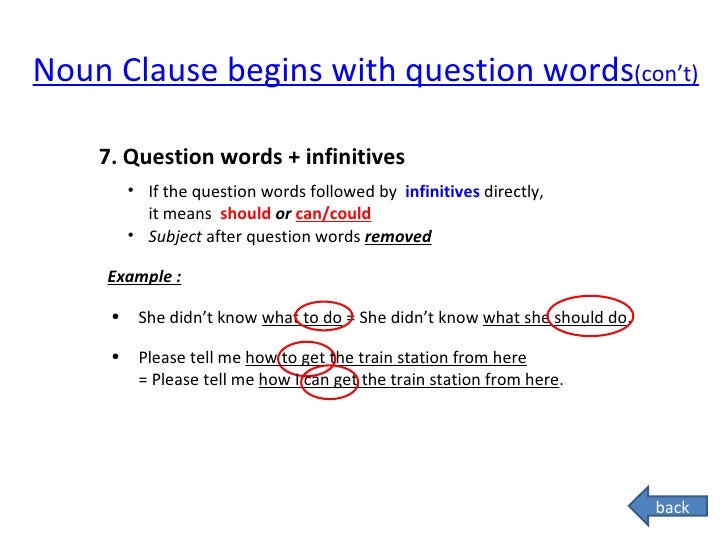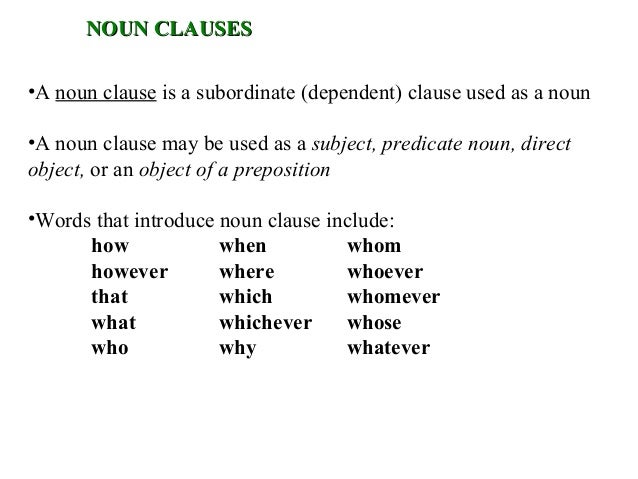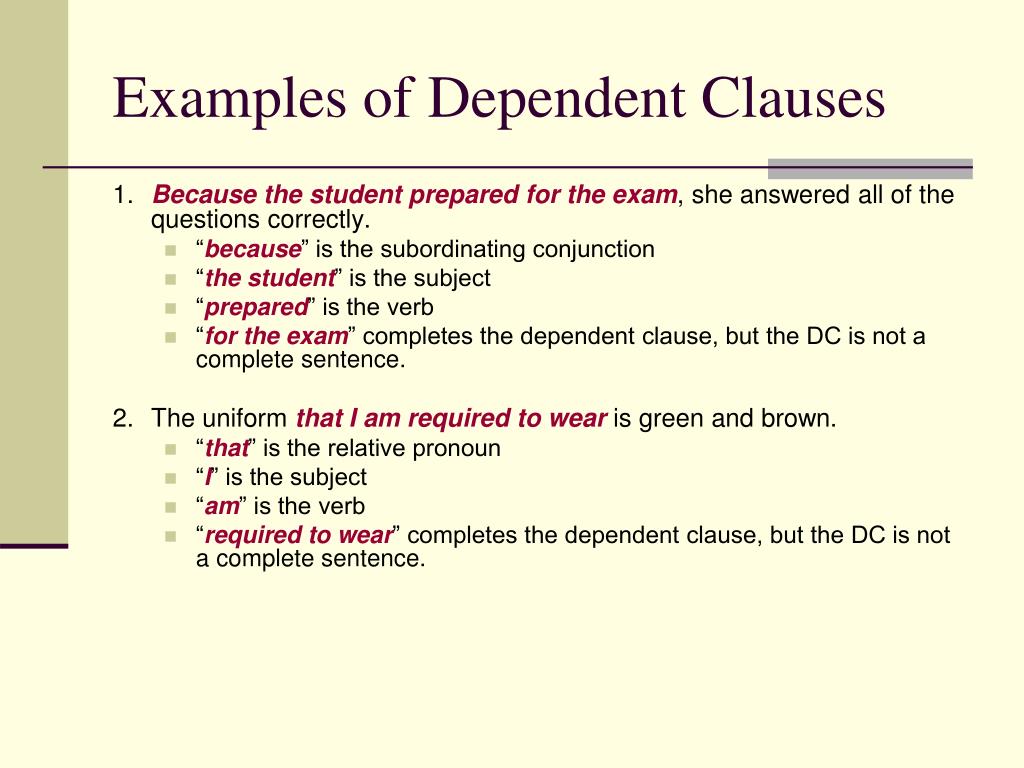Dependent Noun Clause Examples : Noun Clauses: Definition, Functions and Example Sentences ... - What, whoever, whether, that, which, how.
Dependent Noun Clause Examples : Noun Clauses: Definition, Functions and Example Sentences ... - What, whoever, whether, that, which, how.. The subordinators do the work of connecting the dependent clause to another clause to. The dependent (relative) clause is in red, the independent clause is in bold, and the noun being modified is underlined. Dependent clauses help the independent clauses complete the sentence. It contains a subject and a predicate that together express a complete thought. An independent clause is also called a "main clause" because it contains a sentence's main idea, and as the main part, it isn't "dependent" on other clauses to make sense.
A dependent clause alone cannot form a complete sentence. Jul 08, 2019 · the clause functions as a noun in the sentence (it could be replaced by a noun or noun phrase, such as that cake), contains a subject (she) and a verb (is having) but cannot stand on its own. Both the clause and the phrase may exist within a sentence. On a table, under the tree, near the wall, on the roof, at the door. It contains a subject and a predicate that together express a complete thought.

The information in the clause does not have the same importance, so the clause becomes nonessential, requiring a comma to connect it.
It is also called subordinate clause. What, whoever, whether, that, which, how. An independent clause is also called a "main clause" because it contains a sentence's main idea, and as the main part, it isn't "dependent" on other clauses to make sense. Global warming is a problem that must be solved. Jul 08, 2019 · the clause functions as a noun in the sentence (it could be replaced by a noun or noun phrase, such as that cake), contains a subject (she) and a verb (is having) but cannot stand on its own. The dependent (relative) clause is in red, the independent clause is in bold, and the noun being modified is underlined. Both the clause and the phrase may exist within a sentence. A library is a place where you can borrow books. The information in the clause does not have the same importance, so the clause becomes nonessential, requiring a comma to connect it. The clause is thus essential and requires no punctuation. A clause is a group of words that consists of a subject and a verb. It contains a subject and a predicate that together express a complete thought. On a table, under the tree, near the wall, on the roof, at the door.
A dependent clause alone cannot form a complete sentence. The clause is thus essential and requires no punctuation. The information in the clause does not have the same importance, so the clause becomes nonessential, requiring a comma to connect it. What, whoever, whether, that, which, how. The dependent (relative) clause is in red, the independent clause is in bold, and the noun being modified is underlined.

Main clause + , + nonessential adjective clause.
On a table, under the tree, near the wall, on the roof, at the door. It contains a subject and a predicate that together express a complete thought. Global warming is a problem that must be solved. An independent clause is also called a "main clause" because it contains a sentence's main idea, and as the main part, it isn't "dependent" on other clauses to make sense. Some signal words for dependent noun clauses include relative pronouns and subordinating conjunctions such as: Both the clause and the phrase may exist within a sentence. Main clause + , + nonessential adjective clause. What, whoever, whether, that, which, how. Jul 08, 2019 · the clause functions as a noun in the sentence (it could be replaced by a noun or noun phrase, such as that cake), contains a subject (she) and a verb (is having) but cannot stand on its own. A dependent clause cannot function on its own because it leaves an idea or thought unfinished. A clause is a group of words that consists of a subject and a verb. The dependent (relative) clause is in red, the independent clause is in bold, and the noun being modified is underlined. The clause is thus essential and requires no punctuation.
A dependent clause alone cannot form a complete sentence. The information in the clause does not have the same importance, so the clause becomes nonessential, requiring a comma to connect it. What, whoever, whether, that, which, how. Dependent clauses help the independent clauses complete the sentence. A dependent clause cannot function on its own because it leaves an idea or thought unfinished.

On a table, under the tree, near the wall, on the roof, at the door.
It is also called subordinate clause. The clause is thus essential and requires no punctuation. A dependent clause cannot function on its own because it leaves an idea or thought unfinished. The information in the clause does not have the same importance, so the clause becomes nonessential, requiring a comma to connect it. Both the clause and the phrase may exist within a sentence. A dependent clause alone cannot form a complete sentence. Oct 29, 2018 · an independent clause is a clause that can work alone as a complete sentence. Main clause + , + nonessential adjective clause. What, whoever, whether, that, which, how. Jul 08, 2019 · the clause functions as a noun in the sentence (it could be replaced by a noun or noun phrase, such as that cake), contains a subject (she) and a verb (is having) but cannot stand on its own. The subordinators do the work of connecting the dependent clause to another clause to. Dependent clauses help the independent clauses complete the sentence. A phrase is a group of words that does not consist of a subject and a verb.
Both the clause and the phrase may exist within a sentence noun clause examples. When the adjective clause follows a specific noun, the punctuation changes.